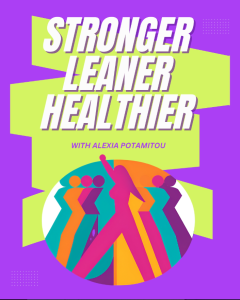
OK, so we are back to school and most of you are wondering what you could do to help your children stay healthy and safe.
A common question I get from families around this time of year is “HOW CAN I BOOST MY CHILD’S IMMUNE SYSTEM”, or is there anything they can do to minimize the risk of their family getting sick.
There are no magic pills that will guarantee that you or your children won’t get sick (if you know of one, please let me know ASAP cause I need to use it!) In fact, it is very likely, that you and your children will get sick at some point over the winter. A child under 5 years of age averages 4-6, minor upper respiratory and viral illnesses each year. Sometimes the cough lasts for weeks. So even though it seems your child has been coughing for months, that is probably normal.
With that being said, there is always room to boost your immune system and decrease your family’s chances of getting sick.
Tips to Boost your Immune System
1. Hand Hygiene: Make sure you wash your hands frequently, especially during a cough and cold season. Do your best to keep your child’s hands and fingers out of their mouth, nose and eyes. Carry hand sanitizer with you when in public places and use frequently.
2. Diet and exercise: Eat a healthy, well-balanced diet. Your family’s diet should be full of fresh fruits and vegetables as well as organic proteins and fats. A nutritious diet is full of the vitamins and minerals needed to keep you healthy. Probiotics have been shown to improve immune function so eat lots of yogurt and fermented foods. Drink lots of water and stay well hydrated. Consider drinking bone broth or have soups that contain that. It is chalk full of minerals needed to keep you healthy. Exercise is also important to keep you healthy. Doing outdoor activities provides much-needed vitamin D.
3. Stay away from junk food and sugar: Spikes in sugar have been shown to negatively affect your immune cells and increase the inflammation in your body, making you more susceptible to infection. Candies may taste great, but they are going to negatively impact your health.
4. Sleep: Your body needs time to recover! Don’t skim on sleep. It is important to get a good night’s rest (at least 8 hours of sleep) to decrease the inflammation in your body and to recover from a long day.
5. Steer clear of STRESS: Stress raises your cortisol and increases inflammation which lowers your white blood cell count and other immune fighting cells. Consider holistic approaches including yoga, meditation, calming teas or essential oils to help control your daily stress levels.
6. Nutritional Supplements: Apart from the general tips provided above, there are several supplements that have been extensively studied. Results are conflicting with some scientific studies showing efficacy and others showing minimal effects. Here are a few supplements you can consider, but keep in mind, there are no magic bullets, and taking supplements in no way, ensures that your child won’t get sick. Please check with your physician before taking supplements. Discuss dosing with your physician if you are unsure how much to give your child as dosages generally vary by age and weight.
7. Multi-vitamin: Most pediatricians go to for general health maintenance is a good multivitamin. Children’s multivitamins provide most or all of the recommended daily intakes for the basic vitamins and minerals. I would recommend taking a multivitamin only if you cannot ensure that your child is not eating a balanced and colorful diet.
8. Vitamin C: Vitamin C is a powerful anti-oxidant which assists our ability to deal with infection and heal our body. Please discuss with me brands if you like.
9. Vitamin D: As a society, we are vitamin D deficient. Try to get a little sun daily to help boost your natural Vitamin D levels. Studies show that individuals taking adequate supplementation of Vitamin D3 had lower levels of viral infections, including cold and flu.
10. Probiotics: Probiotics have been shown to decrease the frequency and length of viral infections. You want to choose a probiotic with Lactobacillus and Bifidobacterium.
11. Zinc: Zinc is required for the normal function of our white blood cells which are the army that fights infection in your body.
12. Nasal Spray: You can irrigate the nasal passages after any concerning exposure (plane travel, etc) or at the first sign of a runny nose. A great place to start is nasal saline.
So there you have it! My tips to a healthier winter season. Please feel free to share this post with other parents who have questions about immune support.


